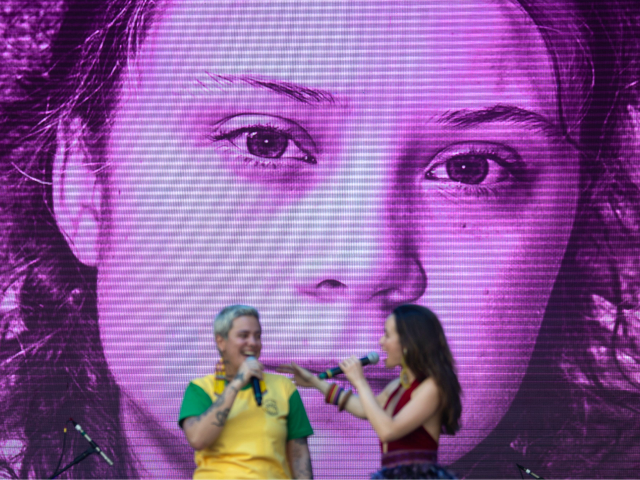An Australian man has pulled his son out of a local school which upset pupils by teaching alarmist climate change theory as a scientific fact.
Matthew Karlos said that he decided to remove his 10-year-old son Max from the school when teachers asked the schoolchildren to “dress up as hippies, and sing this song, Big Yellow Taxi.”
A climate change sceptic, Karlos told local media it is “ridiculous, absolutely ridiculous” to be scaring kids with stories of the end of the world.
“It’s just brainwashing the younger generations.”
Like many, Karlos has been critical of the Greta Thunberg phenomenon and treating her as some sort of anointed climate prophet.
“The fact that you’ve got supposed adults… pushing ideas on a 16-year-old girl and using her as a pawn, is just disgusting; it’s child abuse,” he said.
“Just stop brainwashing the kids and being negative and teach them how to be positive about making good positive changes for the world, not all doom and gloom,” he added.
Matthew had already kept Max at home for a day some weeks earlier when pupils were asked to give a speech on global warming.
“It was to do with mankind induced climate change and all this business they carry on about now,” he said.
Young Max said that the atmosphere at school was deteriorating.
“They shouldn’t be teaching kids that, and yeah we shouldn’t toss away our rubbish,” Max said, “but we shouldn’t be worrying about the end of the world.”
Then one day teachers announced that the last day of the term would be a “Greenie day” at school, which would involve, among other things, dressing up and singing to the environmental song Big Yellow Taxi by Joni Mitchell.
“All the other kids, ‘cause we were all in the one class at the time, they were all going, ‘yay we can dress up as hippies,’ and I just said, ‘what’s so good about it? There’s nothing good about them,’” Max said.
“They just sit around doing nothing all day,” he added.
At that point Matthew decided he had had enough and decided to pull Max out of the school.
“You’ve gotta teach kids to be happy and positive and it’s all well and good to be concerned about the environment and wanting to teach kids good practices and basically not be grubs and throw litter around and this sort of thing, but you don’t have to be a greenie to do that,” he said.
In response, a spokesperson for the New South Wales Department of Education issued a statement saying “studying controversial issues is acceptable for educational purposes.”
Last month, psychologists in Great Britain warned that a growing number of children are being treated for an overwhelming terror of environmental doom, a condition being referred to as “eco-anxiety.”
“Protests by groups such as Extinction Rebellion, the recent fires in the Amazon and apocalyptic warnings by the teenage activist Greta Thunberg have prompted a ‘tsunami’ of young people seeking help,” the Telegraph newspaper reported.
“A lot of parents are coming into therapy asking for help with the children and it has escalated a lot this summer,” said psychotherapist Caroline Hickman of the Climate Psychology Alliance (CPA).
“The symptoms are the same [as clinical anxiety], the feelings are the same, but the cause is different,” she said. “The fear is of environmental doom — that we’re all going to die.”
The Climate Psychology Alliance said psychiatric drugs have been administered to some children complaining of fear of environmental collapse and the group is now pushing for official recognition of eco-anxiety as a psychological condition.
As activists attempt to enlist more young people as eco-warriors, it is no surprise that children are suffering psychologically as a result, since they do not possess the critical thinking skills necessary to separate the facts from the hype. When they hear that the world is ending or that human civilization has only ten years to exist, their natural inclination is to believe it.
Ms Hickman said that parents should learn to use gentler language in talking to their children about global warming.
“What you don’t want is that child to collapse in a well of depression saying ‘what’s the point in going to university,’ or ‘what’s the point of doing my exams,’ which I have heard children say,” Hickman said.
